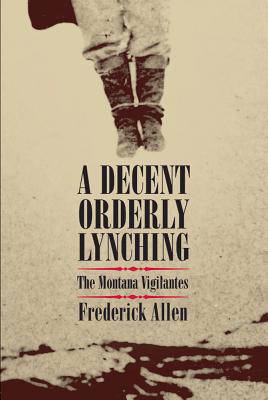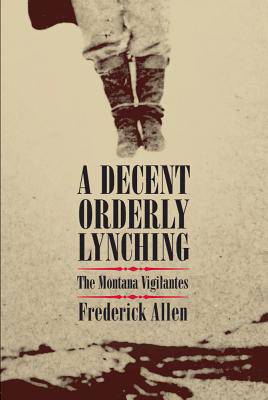
- Afhalen na 1 uur in een winkel met voorraad
- Gratis thuislevering in België vanaf € 30
- Ruim aanbod met 7 miljoen producten
- Afhalen na 1 uur in een winkel met voorraad
- Gratis thuislevering in België vanaf € 30
- Ruim aanbod met 7 miljoen producten
Omschrijving
The deadliest campaign of vigilante justice in American history erupted in the Rocky Mountains during the Civil War when a private army hanged twenty-one troublemakers. Hailed as great heroes at the time, the Montana vigilantes are still revered as founding fathers.
Combing through original sources, including eye-witness accounts never before published, Frederick Allen concludes that the vigilantes were justified in their early actions, as they fought violent crime in a remote corner beyond the reach of government.
But Allen has uncovered evidence that the vigilantes refused to disband after territorial courts were in place. Remaining active for six years, they lynched more than fifty men without trials. Reliance on mob rule in Montana became so ingrained that in 1883, a Helena newspaper editor advocated a return to "decent, orderly lynching" as a legitimate tool of social control.
Allen's sharply drawn characters, illustrated by dozens of photographs, are woven into a masterfully written narrative that will change textbook accounts of Montana's early days--and challenge our thinking on the essence of justice.
Specificaties
Betrokkenen
- Auteur(s):
- Uitgeverij:
Inhoud
- Aantal bladzijden:
- 496
- Taal:
- Engels
Eigenschappen
- Productcode (EAN):
- 9780806136516
- Verschijningsdatum:
- 10/02/2005
- Formaat:
- Genaaid
- Afmetingen:
- 200 mm x 247 mm
- Gewicht:
- 771 g

Alleen bij Standaard Boekhandel
Beoordelingen
We publiceren alleen reviews die voldoen aan de voorwaarden voor reviews. Bekijk onze voorwaarden voor reviews.











